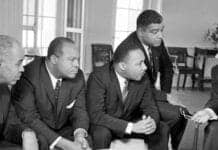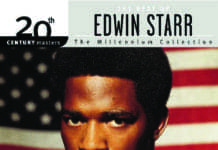by Douglas J. Gladstone

They are all retired persons of color who currently don’t receive pensions from having played Major League Baseball (MLB).
The older brother of Ruth, Anita, Bonnie and June Pointer – aka “The Pointer Sisters” – the 75-year-old Mr. Pointer played for the Houston Colt 45s in 1963; then, when the team became the Astros, played for that club in 1966 and 1967. Overall, in 40 career games, Mr. Pointer came to the plate 101 times and collected 21 hits, including five doubles and two home runs. He scored 11 runs and drove in an additional 14.
The 75-year-old Mr. Pointer, who was born in Little Rock but grew up in West Oakland, California, was the student body president of McClymonds High School. He later attended the University of San Francisco on a full basketball scholarship.
After hanging up his spikes, Mr. Pointer worked for the Pierce County (Tacoma, Washington) Parks and Recreation Department for 29 years. In that capacity, he supervised the scheduling of athletic activities.
Between 1978 and 1987, Mr. Pointer began officiating Pacific-10 Conference games. He was the first African American ref in the PAC-10.
Mr. Pointer then worked National Football League (NFL) games from 1987 to 2003. He was an NFL head linesman.

Inducted into the Tacoma Hall of Fame in 2008, Mr. Pointer currently serves on the Metropolitan Park District of Tacoma Board of Commissioners as well as on the executive board of the Tacoma Athletic Commission.
Mr. Pointer doesn’t receive a traditional pension from MLB because the rules for receiving MLB pensions changed in 1980. Pointer and the other men do not get pensions because they didn’t accrue four years of service credit. That was what ballplayers who played between 1947 and 1979 needed to be eligible for the pension plan.
Instead, they all receive nonqualified retirement payments based on a complicated formula that had to have been calculated by an actuary. In brief, for every quarter of service a man had accrued, he’d get $625. Four quarters (one year) totaled $2,500. Sixteen quarters (four years) amounts to the maximum, $10,000.
Meanwhile, a vested retiree can earn a pension of as much as $210,000, according to the IRS. Even the minimum pension for 43 game days of credit after 1980 is a reported $34,000.
To date, the Major League Baseball Players Association (MLBPA) has been loathe to divvy up any more of the collective pie. Even though Forbes recently reported that the current players’ pension and welfare fund is valued at $2.7 billion, MLBPA Executive Director Tony Clark – the first former player ever to serve as leader of the union – has never commented about these non-vested retirees, many of whom are filing for bankruptcy at advanced ages, having banks foreclose on their homes and are so sickly and poor that they cannot afford adequate health care coverage.
Although MLB, which has launched youth programs that include Reviving Baseball in Inner Cities, has been praised for its increases in minority hiring, Clark told the Associated Press last year the union would like to see opportunities expanded to include senior club administration.

But what about the retirees who grew the game? You know, the same men like Pointer and Murphy (an African American who played for the New York Mets) and Cage (an African American who played for the Cleveland Indians) and Barragan (a Cuban-American who caught for the Chicago Cubs) and Roberts (a native of Panama City, Panama, who played for the Pittsburgh Pirates) who stood on picket lines and endured labor stoppages and went without paychecks so Los Angeles Dodgers closer Kenley Jansen could command a five-year $85 million contract last year?
Clark last year revived the coveted Jackie Robinson Lifetime Achievement Award from the Negro Leagues Museum in Kansas City. It therefore seems a little hypocritical to receive an award named to honor arguably the greatest pioneer in race relations this country has ever known, then hose a man like Pointer, who is a pioneer in his own right.
A New York based freelance writer who has been published in multiple magazines and webzines, Douglas J. Gladstone is the author of two books, including “A Bitter Cup of Coffee: How MLB and the Players Association Threw 874 Retirees a Curve.” He can be reached at flackscribe@aol.com.

 Store
Store












